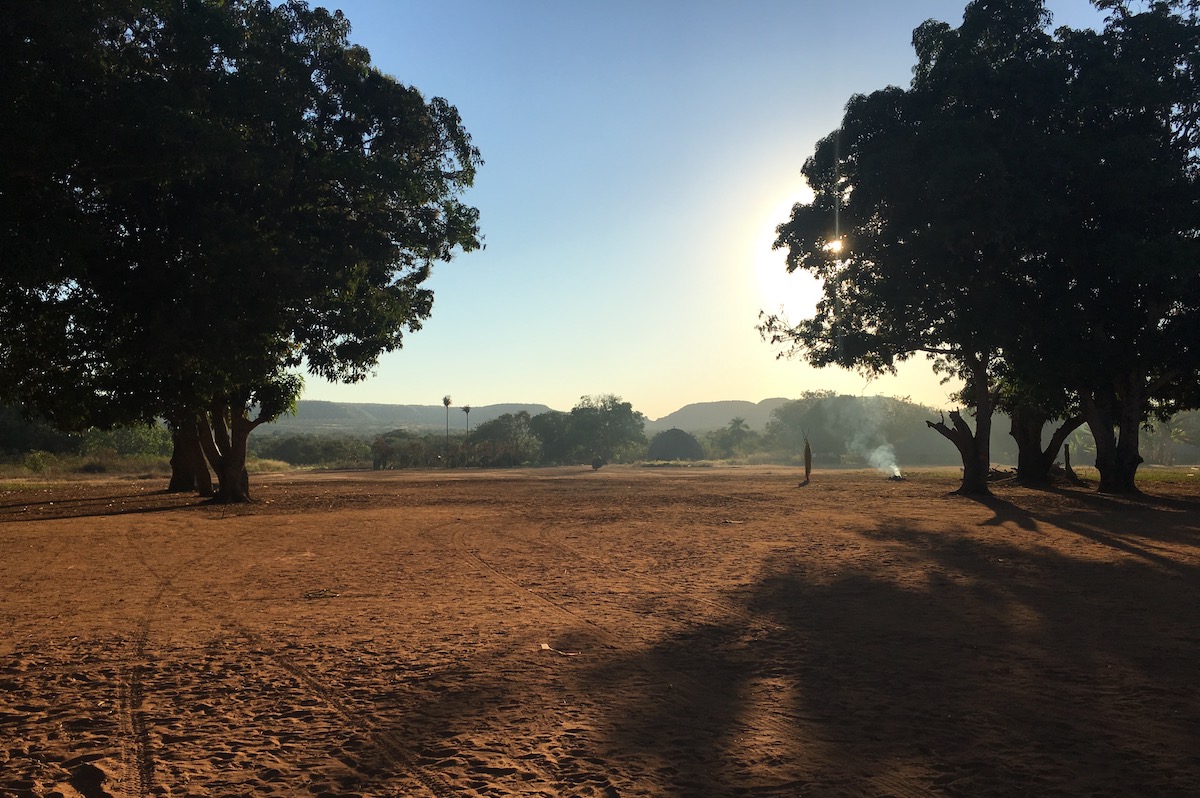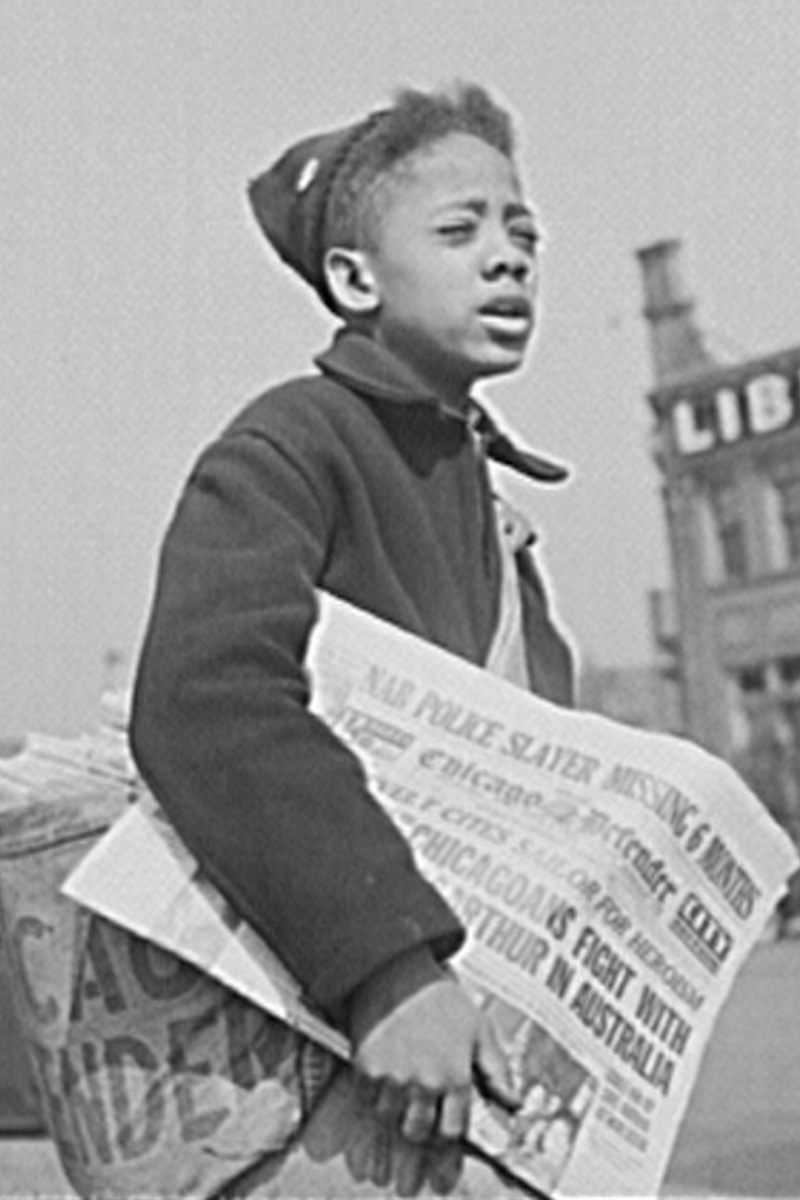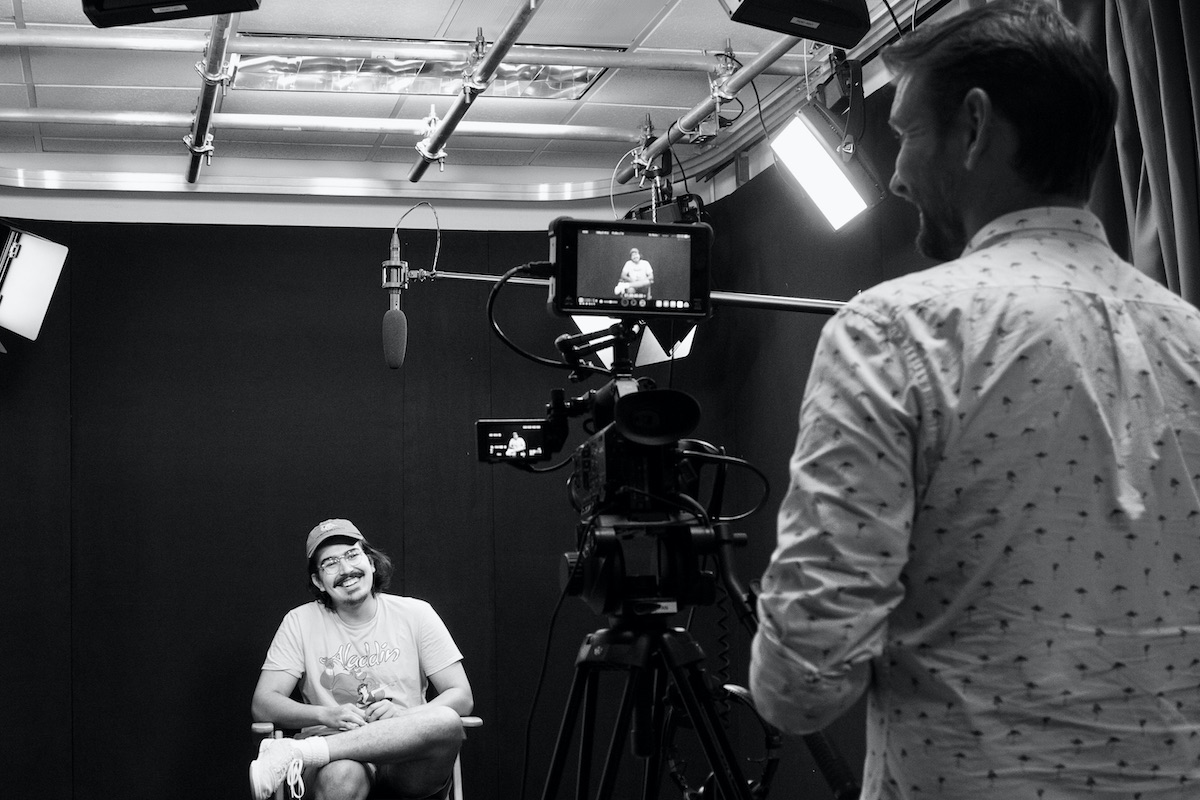Grants from the National Endowment for the Humanities and National Science Foundation, along with the Oral History Project, exemplify Emory Libraries’ commitment to equitable and transparent relationships in its research and community-building efforts.
“The launch of these projects accelerates the library’s efforts to promote access and learning, equity and justice by documenting, preserving and making accessible diverse collections. Even as they are distinct in focus, each project is undertaken with humility and deference to the expertise of the communities served, creating online access to resources that are critically important for the advancement of research and education,” says Jennifer Gunter King, director of the Stuart A. Rose Manuscript, Archives, and Rare Book Library.
More equitable research for marginalized groups through digital access
Rosanna Dent, project PI and assistant professor at the New Jersey Institute of Technology, captured this image following a morning community council meeting in July 2018 in the A'uwẽ-Xavante aldeia of Pimentel Barbosa, one of several partner communities. Rosanna Dent
A grant from the National Science Foundation to Emory and collaborating partners will help universities, museums and archives grapple with how to responsibly manage scientific collections created under unequal power dynamics.
The three-year, $498,050 grant — to be shared among Emory, New Jersey Institute of Technology (lead), University of Iowa and researchers at Fiocruz — is titled “Digital Archives and Indigenous Afterlives of Scientific Objects.” It will study of the effects of scholarly research carried out among A’uwẽ-Xavante, an Indigenous community in central Brazil.
Lori Jahnke, anthropology librarian for Emory Libraries, and her colleagues at the collaborating institutions won the grant after years of preliminary work and planning. Jahnke is also affiliated with the Department of Anthropology in Emory College of Arts and Sciences — dual homes that feel entirely natural to her.
“I am deeply invested in both worlds, having worked in libraries since I was an undergraduate and throughout my research and training. While I don’t have time for fieldwork anymore, there are other ways for me to be active in my discipline, and this is one way. Being a subject librarian has made me a better anthropologist and staying active as a researcher also helps me support the anthropology department,” she advises.
A’uwẽ-Xavante have been welcoming researchers since the 1950s, and yet there is a vast corpus of published and archival material about them to which they do not have access. This grant, then, is an opportunity to “bring those materials back together through digitization and for us to work collaboratively to build a repository that respects their interests,” notes Jahnke.
Each institution and entity is there to provide the needed technical and cultural expertise. As Jahnke observes, “We are embedded in our cultural systems and tend to take for granted that we are objective and have no bias. When you take a step back, you realize that is not the case.”
Phased across three years, “Digital Archives and Indigenous Afterlives of Scientific Objects” will establish and test a methodology for collaborative, community-based work to document and understand subjects’ experience of scientific research and the afterlives of scientific objects that are produced. The project will help researchers reevaluate assumptions about data collection, their methodologies, intellectual property and knowledge production.
Jahnke credits the research of Kimberly Christen, director of the Center for Digital Scholarship and Curation at Washington State University, as foundational. The team will use Mukurtu, the platform Christen and her colleagues pioneered, which, says Jahnke, “was developed to respect Indigenous concepts of knowledge sharing that don’t always align with Western copyright laws and intellectual property.”
An A’uwẽ-Xavante oversight committee will govern the archive’s priorities and content as well as contribute a yearly project assessment.
“They can discontinue the project at the end if it doesn’t meet community needs. While we hope this doesn’t happen, if you are serious about research and data sovereignty, you have to be okay with outcomes that don’t suit your research agenda. That said, we think the partnerships built into this project make that unlikely,” says Jahnke.
Indeed, she and the other collaborators are hopeful about what is to come. As the team gears up, Jahnke is about to hire a graduate assistant and anticipates visiting Brazil in the second half of the project.
“I am interested to learn more about A’uwẽ-Xavante perspectives on the scientific materials from their communities. The materials likely hold both value and risks that we don’t anticipate. We hope that the work we do through this archive will create new and more equitable paths for future research,” she says.
Broadening access to Black print culture

A newsboy is pictured in 1942 selling the Chicago Defender, one of many Black newspapers in “African American Newspapers and Periodicals: A National Bibliography.”
Jack Delano, April 1942, Library of Congress
In 1998, James Danky and Maureen Hady’s “African American Newspapers and Periodicals: A National Bibliography” heralded an enormous leap forward in access to Black print culture, containing the richest, most detailed record of 19th- and 20th-century African American life and thought. Now, a grant of $46,630 from the National Endowment for the Humanities to Emory Libraries makes it possible to create an online, searchable version of the bibliography as well as add new serials to it.
"The Wayfinder Project: Revealing Black Print Culture to a Linked World, 1830–” marks a collaboration among the Rose Library, Emory Libraries and the Emory Center for Digital Scholarship.
There is no mystery as to why Emory should be entrusted with this grant. “Given the Rose Library’s considerable collections in this area, we are excited and encouraged by this opportunity to contribute to this ever-expanding area of research,” says Clint Fluker, curator of African American collections.
As the invocation of a “linked world” in the grant title indicates, the intent is to leverage current technology to ensure the widest possible access to these periodicals. Beyond the 6,500 entries in the Danky/Hady bibliography, the project will integrate data from open-source resources, such as Chronicling America, and proprietary databases, such as Readex’s Early American Newspapers and Accessible Archives.
“While great strides have been made in newspaper digitization, no centralized digital interface provides accurate information about titles and where to find them,” says Erica Bruchko, librarian for African American history. “The Wayfinder Project aims to create an interface that will address these challenges and greatly enhance researchers’ ability to discover and access these publications.”
And it is not just the periodicals themselves: the project will create ever-widening avenues of scholarly exploration on the people, places and communities that created and used these materials.
Elizabeth Russey Roke, discovery and metadata archivist at the Rose Library, sees the process itself as being groundbreaking, saying, “A focus on linked data represents a new chapter in discovery of library and archival collections.”
A hub for university storytelling

An image from 2019 showing Jonathan Coulis filming an oral history interview in Woodruff Library.
Emory Libraries
The coordinator of the Oral History Program, Jonathan Coulis, is himself a convert to the methodology. While completing a master’s degree in history and international development, Coulis was studying a period of military dictatorship in Latin America.
“I first pursued traditional archival research only to realize that a military dictatorship would not put much effort into preserving archives. I turned to using first-person narratives and then pivoted to oral history,” he says.
Choosing Emory for his PhD in modern Latin American history, Coulis was a Woodruff Fellow who, along with subject librarian Nidia Bañuelos, pursued a library grant to pilot the Oral History project in fall 2017.
“How we form who we are is based on how we interpret our memories and share them with the world — that always has fascinated me,” says Coulis.
The project started by focusing on Emory’s first-generation students. “They wanted more agency to tell their stories,” says Coulis, “and it wasn’t long before this project was already growing beyond first-gen students to other communities that, in a lot of ways, felt that their history hadn’t been adequately documented, including Black, Latinx and LGBTQ+ students.”
This series of interviews — “Underrepresented Voices at Emory” — “naturally has built itself” over time, says Coulis, as he and his staff knock on more doors to increase awareness. Coulis also taught a course on oral history in the history department.
The other current project is “Stories during the Coronavirus Pandemic,” and Coulis recalls speaking to students sheltering in place in India when the pandemic first began. “If you pull this string of yarn from the Atlanta campus to wherever these lives are being led, it reflects on Emory’s internationalism and its inclusiveness,” Coulis says.
Emory Libraries has provided the support to continue both these projects into the future. “We are committed to maintain our ongoing work year over year, adding chapters, and not just from the standpoint of building accessible collections. These stories, and the people sharing them, are important,” says Coulis.
As the initiative matured from a project to a program, Coulis brought on undergraduate and graduate students who assist with the interviews. Like those on the other end of the microphones, these students also reap rewards from the experience.
They have used their training to apply for graduate programs, a postdoc, or a job in their field. A few have changed their career plans as a result, including one student who left history behind to take on linguistics, preferring to analyze the spoken word and narratives.
“Some have turned to journalistic paths while others have stayed with their original courses of study but are grateful for having mastered interhumanistic skills and learning styles through work with us. It is great to see,” notes Coulis.
Hint to seniors: Consider telling your story before graduating. “People can have their story, with their own voice and image, included in the university archive for years to come. This is a material way to leave one’s mark on the campus,” says Coulis.
“We said when we started, ‘we care about your stories,’ and we will continue to demonstrate that.”
